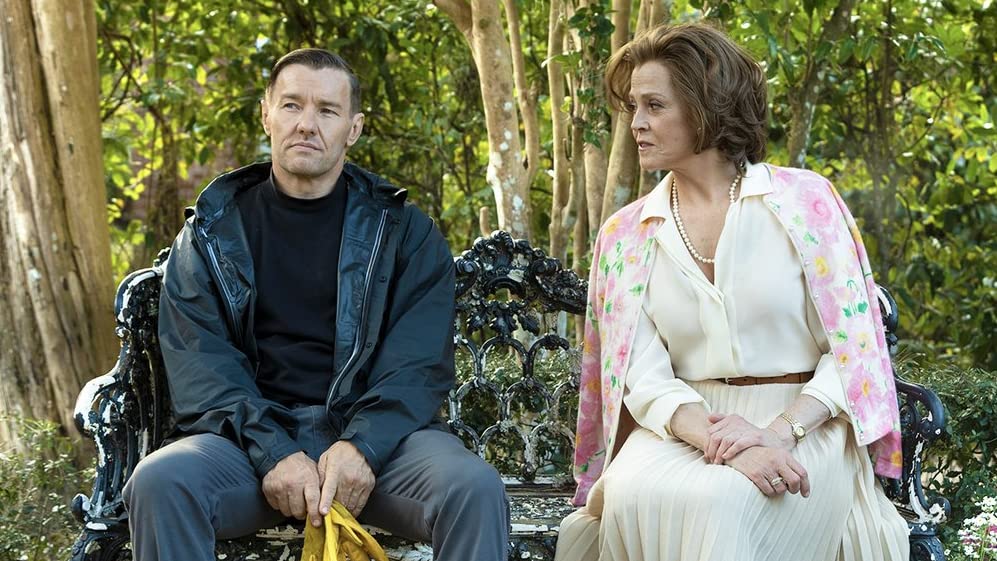
‘Master Gardener’ // Transmission Films
‘Master Gardener’ was calculated.
Veteran screenwriter and director Paul Schrader’s latest outing is a character study into stoic, meticulous horticulturalist Narvel Roth (Joel Edgerton) and his relationship with his young apprentice Maya (Quintessa Swindell). As the pair’s relationship veers into romance, Roth’s dark past and Maya’s destitute present catch up with them both, and the serene setting of a beautiful garden is infected by violence.
Schrader first gained notoriety in the late 1970s as a writer for some of Martin Scorsese’s most renowned early works, including ‘Taxi Driver’ and ‘Raging Bull,’ as well as directing his own films such as ‘Blue Collar’ and ‘American Gigolo.’ More recently, Schrader’s career has had a resurgence with critically acclaimed hits ‘First Reformed’ and ‘The Card Counter,’ the former of which earning him an Academy Award nomination. Schrader considers ‘Master Gardener’ to be the third of a loose trilogy with these films and it is easy to see why. All three star a brooding, methodical male lead with a troubled past, and hitch their story to some weighty themes. All three feature narration from their protagonists, with frequent montages of their day-to-day routines, and structure their unfurling narrative around said protagonist’s relationship with a new love interest.
Joel Edgerton’s turn as Narvel Roth is at first a seemingly obvious archetype of a strict mentor. Roth is so quiet, so meticulous, and so devoted to his job, it seems an inevitability that the man will demand perfection and lose his temper when an apprentice makes a mistake. Not so, however, as his demeanour is entirely unshakeable, and his response to imperfection is kind and constructive. Edgerton’s performance really grows on the viewer as the film progresses, especially as Roth’s past is revealed and the character’s calmness is put into perspective with the rest of his life. It is Edgerton’s performance that makes Roth compelling.
However, unlike the protagonists of previous Schrader scripts (such as Travis Bickle in ‘Taxi Driver’ or Reverend Toller in ‘First Reformed’), there is never a sense that Roth has been wronged by the world, rather he has done wrong by the world. Schrader’s previous scripts explore descents into radicalism from men who are furious with the hypocrisy of those around them, while Roth never experiences any such anger. In a way, Roth seems like Schrader has consciously inverted his previous formulas, but the downside is that all of Roth’s growth seems to have already happened before the film begins. Edgerton’s performance gives the character dimension, but Roth never seems to grapple with inner turmoil or self-loathing about his past, rather he has fully come to terms with it and has no qualms about resorting to violence for “good.” So, while his redemption feels deserved, as he is clearly not the man he once was, Roth’s internal conflict is rarely touched upon.
As far as the narrative goes, it doesn’t quite reach the compelling heights of the films that preceded it. The first act is an endearing slice of life narrative, with some intriguing hints of the deviation to come. Once the second and third acts come along, however, the payoff from those hints doesn’t quite land as effectively as they could. ‘First Reformed,’ for example, delicately tied in themes of religious crisis and environmentalism, naturally bridging the two together with its setting, while ‘Master Gardener’ ties its themes in with the setting less, and more stitches them together. The antagonists are one-dimensional and don’t tie in with Roth’s past, and instead the relationship between Roth and Maya takes centre stage.
Roth’s relationship with Maya is framed as one of redemption due to his past. The leads have chemistry, that much is unquestionable, but their relationship initially feels more paternal in nature, before veering into romantic. This is not helped by the real-life age gap between Edgerton and Swindell (23 years) and it is an element of their relationship that is largely dropped in the second half of the film, presumably because Schrader would rather play their romance straight than invoke any discomfort about it. Even Roth’s boss Norma (Sigourney Weaver) is framed as a negative influence for being opposed to the relationship, despite being Maya’s great aunt and having also had a sexual relationship with Roth.
Schrader’s visual direction and cinematography from Alexander Dynan is slow, deliberate and helps enforce the realism of the film. Opting not for showy angles or elaborate framing, they are content to let the beauty and ugliness alike speak for themselves. Most scenes go for mid shots or full shots rather than close-ups, with long unbroken takes and short, gradual camera movement. It is a gorgeously shot film without overstating itself. It is edited in a similar style, though there are key moments where editor Benjamin Rodriguez Jr. utilises rapid-fire jump-cuts to indicate urgency while also showing that time is passing. It is initially jarring but serves its purpose well and effectively instils tension.
The colour palette of ‘Master Gardener’ is limited and washed out. Outside of the gardens themselves, there is a lot of beige, grey and brown. The flowers stand out all the more because of this, giving the location the tranquil feeling that it is a safe haven from Roth’s past. Within the movie, the garden represents growth and stability, and a hope for the future.
As a conclusion to Paul Schrader’s soft trilogy, ‘Master Gardener’ is an appropriate and worthy successor in some ways, while it falls short in others. Of course, it is still a standalone film, and it is not at all necessary to be familiar with Schrader’s prior work. Joel Edgerton’s performance is a career high, and Quintessa Swindell is a strong co-lead. Schrader’s screenplay may not quite scratch the itch that his other films have, but his direction and attention to detail is in top form, and it is well worth a watch for fans of his work.
‘Master Gardener’ opens in Australian cinemas on Thursday, 7 December 2023.






